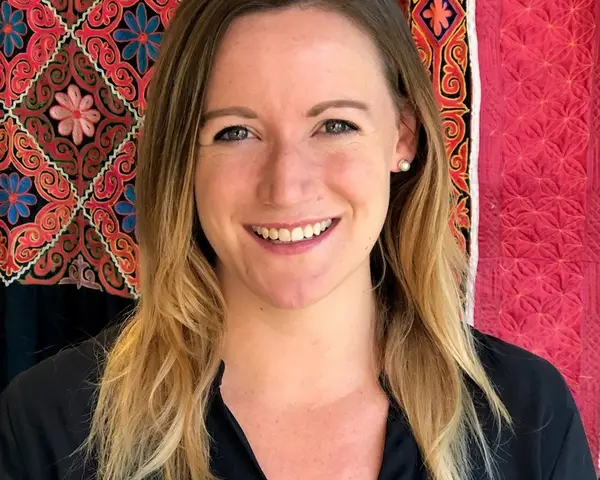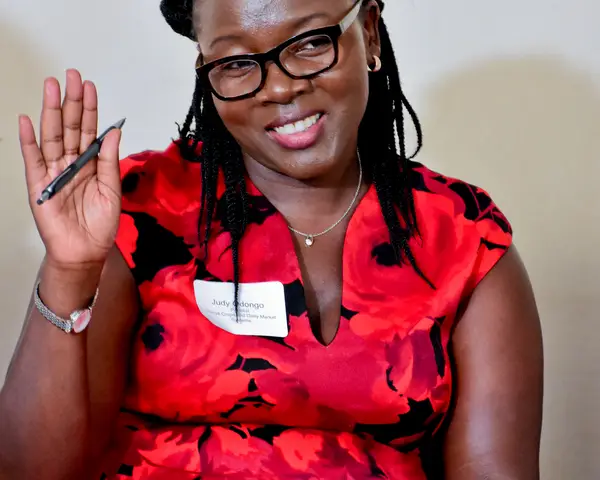Locally Led Monitoring, Evaluation, Research, Learning, and Adapting (MERLA) Solutions | Webinar
Date
Recently, U.S. Agency for International Development (USAID) Administrator Samantha Power highlighted the importance of supporting and advancing locally led development. Administrator Power stated that “effective development is driven by those on the ground with local knowledge and expertise.” Over the last several years, initiatives like Local Solutions, Local Systems Framework, Journey to Self-Reliance, Local Works, New Partnerships Initiative (NPI), and USAID Forward have all taken steps in this direction.
Our work in Monitoring, Evaluation, Research, Learning, and Adapting (MERLA) has been a prominent area where locally led solutions have found tremendous traction. MERLA experts are often those who have the “local knowledge and expertise” that Administrator Power mentions. We look forward to having you virtually join us to hear from some of these experts as they share their experience implementing locally led MERLA solutions. The recording will be made available once the event has concluded.
Photo by Katie G. Nelson for RTI International
Watch the Webinar
Meet the Speakers

Colleen Brady, Senior Monitoring, Evaluation, and Learning (MEL) Specialist, ZemiTek Institutional Support Contractor for USAID's Local, Faith, Transformative Partnerships Hub
Colleen Brady provides monitoring, evaluation, and learning (MEL) support to USAID/LFT Hub’s Locally Led Development Initiatives through ZemiTek, LLC. She brings eight years’ experience in MEL, project implementation, and knowledge management for USAID, the Peace Corps and the U.S. Department of State to the team. Specializing in community engagement and qualitative research, Ms. Brady has conducted fieldwork in Cameroon, the Dominican Republic, France, Ghana, the Philippines, and the United States. She holds a BA degree in International Studies and French from Washington University in St. Louis and a Master’s degree in Urban Planning (MUP) from Harvard University.

Cosnat Ntenje, Former Senior Monitoring, Evaluation, and Learning Specialist and M&E Team Leader, Infonex Corps, Malawi
Cosnat Ntenje is a MEL expert with nine years’ professional experience managing information systems, data security and M&E in major US-funded (USAID, PEPFAR, CDC) development projects in Malawi. Most recently, he was Senior ME&L Specialist and M&E team leader for the national MERIT (Malawi Early Grade Reading Improvement) Activity with Infonex Corp., a subcontractor to RTI International, and now leads Infonex Malawi, an emerging leader in Malawi M&E, education research and analysis, as Managing Director and Chief Technical Officer. Cosnat currently supports the Education Management Information System (EMIS) of the Malawi Ministry of Planning as a UNICEF contractor with the M&E Support to UNICEF Malawi Pillar 2 (Education and Adolescent Development & Participation). He has a MSc degree from the Malawi Institute of Management (MIM) in Management Information Systems.

Ana María Rivera, Chief of Party, USAID Monitoring, Evaluation, and Learning Activity in Colombia, Panagora Group
Ana Maria Rivera is the Chief of Party for the USAID Monitoring, Evaluation, and Learning Activity in Colombia. She is a seasonal Industrial Engineer with an MBA from the University of Los Andes in Bogotá. During her more than 30 years of experience, Ana María had the opportunity to work for the Colombian Government not only in public policy strategic design and public budgeting. She has also worked with international cooperation agencies guiding international development programs, and in the latest years, focusing on monitoring and evaluation. Her background and knowledge extend to assessing critical issues, planning, strategizing, monitoring and evaluating government and cooperation issues, budgeting, and reporting. Ana María is an expert in designing policy reforms, establishing organizational structures, finding areas for systemic improvement, enhancing strategic support for processes, and evaluating structural design by assessing results, performance and impact indicators, especially in the public sector.

Aya Vang, Senior Associate, Busara Center for Behavioral Economics, Kenya
Aya Vang is a Senior Associate at Busara Center for Behavioral Economics. She specializes in experimental evaluation and learning. Busara is a partner on the USAID Feed the Future Kenya Crops and Dairy Market Systems Activity (KCDMS) consortium. Aya has led multiple work streams, where locally led qualitative, quantitative and experimental research was core. Aya is particularly passionate about more testing of programs for potential impact before they are scaled up/rolled out. A mantra they like at Busara is: don't discuss - just test.

Moderated By: Rajeev Colaço, Director of MERLA, RTI International
Dr. Rajeev Colaço is the Director of MERLA in the International Development Group at RTI International. He is also Adjunct Professor in Monitoring, Evaluation, and Learning at the George Washington University Elliott School of International Affairs. In his capacity as MERLA Director, Dr. Colaço oversees M&E, applied research, and learning activities that promote RTI’s core goal of translating knowledge into practice. Dr. Colaço has extensive experience conducting rigorous M&E and research, and framing results into learning for programmatic adaptation. The technical areas in which Dr. Colaço leads MERLA include integrated and cross-sectoral systems strengthening, sustainability, local capacity strengthening, integrated data systems, resilience, global health, governance, agriculture, environment, education, energy, gender, and WASH (water, sanitation, and hygiene).

Moderated By: Judy Odongo, Deputy Chief of Party, USAID Feed the Future Kenya Crops & Dairy Market Systems Activity, RTI International
Judy Odongo is the DCoP-Technical on the USAID Feed the Future KCDMS. KCDMS is a 5-year activity aimed at catalyzing agri-led economic growth in 12 of the 47 counties in Kenya, build resilience of select agricultural market systems and households, reduce poverty, and increase household nutritional outcomes. Prior to this role she served as the MEL team lead on the same project where she led the team in designing and implementing an elaborate MEL system which integrates stakeholder driven data collection as well as the collaborating, learning, and adapting approach.